Six young African filmmakers are on the bill for the 76th edition of the Cannes Film Festival, two of whom, Ramata-Toulaye Sy and Kaouther Ben Hania, are in the running for the Palme d'Or and four, Asmae El Moudir, Mohamed Kordofani, Kamal Lazraq and Baloji, in the "Un certain regard" selection. "The question that preoccupies them is no longer that of the construction of Africa after independence, as in the time of Sembène Ousmane [Senegalese director and pioneer of cinema in Africa with his film Borrom Sarret in 1963], but rather: how to live in the world today?" said Olivier Bartlet, a researcher and discerning connoisseur of African cinema.
Ramata-Toulaye Sy, for 'Banel & Adama'
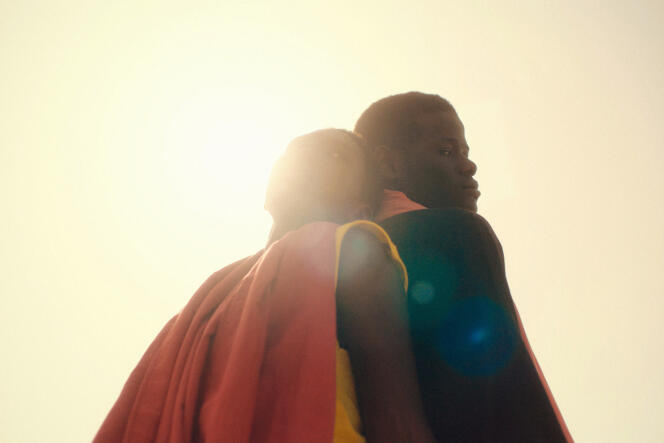
The French-Senegalese filmmaker Ramata-Toulaye Sy is the only director in the competition selected for a first feature film. She trained as a screenwriter and after studying at the Ecole nationale supérieure des métiers de l'image et du son (La Fémis, in Paris), she shot her first short film, Astel, in 2021. She shot it in Fouta-Toro, where both her parents were born, and which is 15 minutes by pirogue from Mauritania. It is in this region of northern Senegal where the passionate love story between two young people in Banel & Adama is set.
"It's a 'huis clos'," Ramata-Toulaye Sy told Le Monde. "I wanted to write a tragedy, an African Romeo and Juliet; I dreamed of filming the most beautiful love story of the continent." A passion without cell phones or electricity, where the female character, "already emancipated, radical and passionate, tips the film into modernity." "My film is far from being naturalistic; it's magic realism," said the 36-year-old director, who was raised in Paris. "I am very proud to represent Africa at Cannes," she added. "And I am happy that there are so many of us this year. But we shouldn't have to count African filmmakers, that should be the norm."
Kaouther Ben Hania, for 'Les Filles d'Olfa'
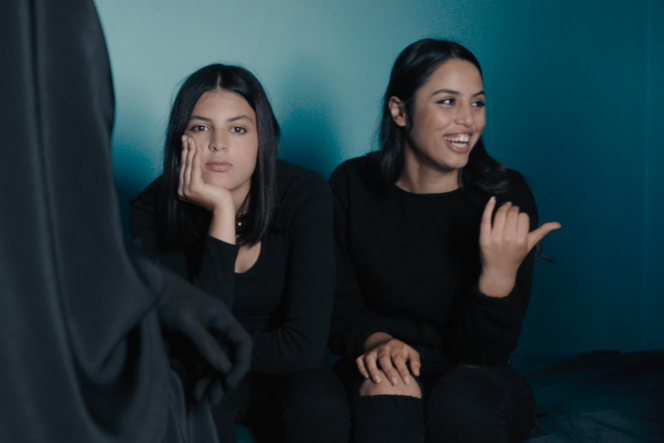
The Tunisian director Kaouther Ben Hania is more familiar with the festival and already has several award-winning films on her list: La Belle et la Meute (Beauty and the Dogs), presented in 2017 at Cannes in the "Un certain regard" category, and L'Homme qui a vendu sa peau (The Man Who Sold His Skin), selected in the "Orizzonti" category at the Venice Film Festival in 2020. Since making her first feature film – Le Challat de Tunis ("The Knifer of Tunis") in 2014 – the filmmaker, who trained at the Tunis School of Arts and Cinema and at La Fémis, likes to blur the lines and play with the codes of fiction and documentary, which she says are "two genres that dialogue well." She's in the running for the Palme d'Or with Les Filles d'Olfa (Olfa's Daughters), her fifth feature film, which traces ten years in the life of a woman from a modest background whose two daughters joined the Islamic State (IS) in Libya in 2014.
Asmae El Moudir, for 'The Mother of All Lies'
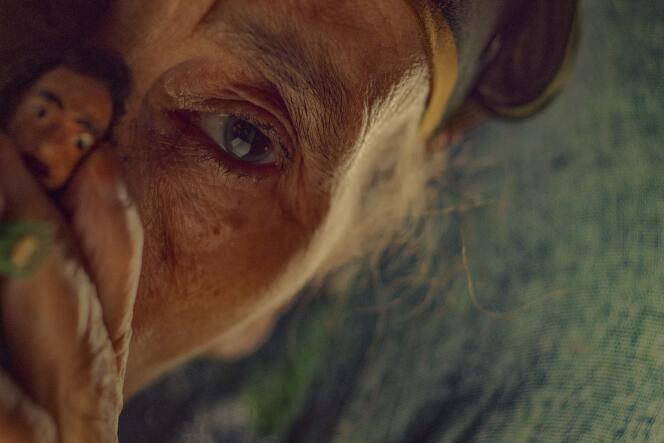
The quest for a language on the edge of fiction and documentary also motivates the Moroccan director Asmae El Moudir, 32. "I always start with a photo to tell my stories," said the filmmaker, who in The Mother of All Lies explores a family's unspoken words and the 1981 bread riots in Casablanca. Lacking archival footage, the director, who also graduated from La Fémis after studying in Morocco, has figurines interacting with people and creates her own archives by filming in a workshop – a space where "speech can be freed without putting anyone in danger."
Mohamed Kordofani, for 'Goodbye Julia'
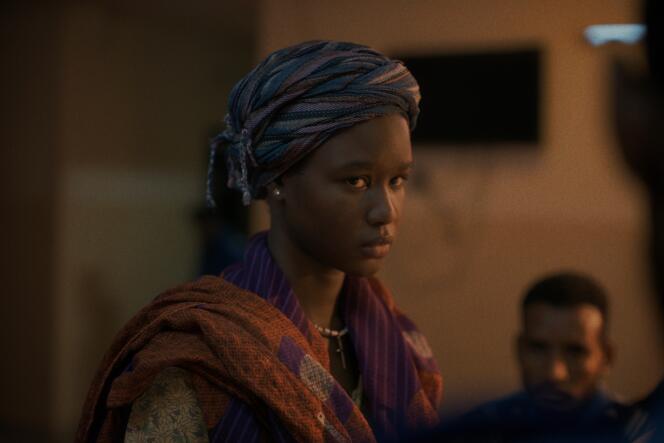
The Sudanese director Mohamed Kordofani, 40, is also taken up by questions of form. Selected in the "Un certain regard" category, his first feature film Goodbye Julia tells the story of two young women, one in the south of Sudan, the other in the north. "It's not a political film, though," he said; he was post-production in Beirut when war broke out in Khartoum. "The filming was very difficult, often interrupted by tear gas," said the director on the phone from Dubai. "Without the passion of the whole team – most of the technicians were not even 25 years old – this film would not have seen the light of day," he said.
Kamal Lazraq, for 'Les Meutes'
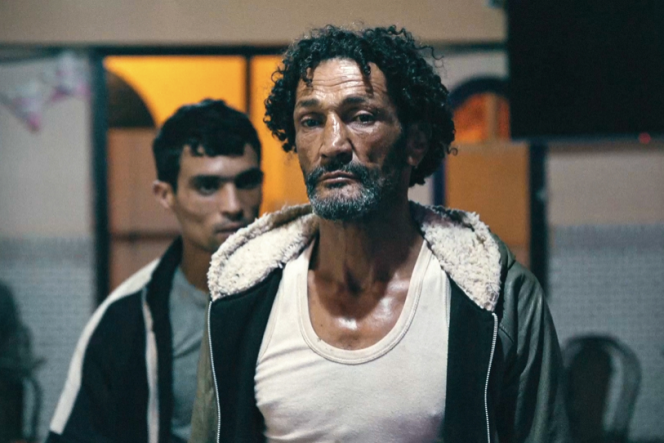
Born in Casablanca in 1984, director Kamal Lazraq is presenting his first film at Cannes. Les Meutes ("The Pack of Dogs") follows Hassan and his son Issam, who make a living from petty crime in the working-class neighborhoods of Morocco's economic capital. Also a 2011 graduate of La Fémis, the director has already explored the urban margins in his short film Moul Lkelb ("The Man with the Dog").
Baloji, for 'Augure'
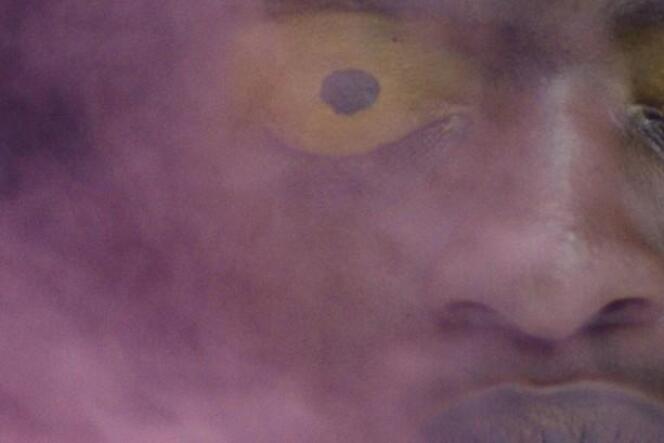
Born in 1978 in Lumumbashi, in the Democratic Republic of Congo (DRC), Baloji lives in Belgium and is akin to a UFO in this landscape of young filmmakers, who trained at the best schools. A self-taught filmmaker who has constantly failed in his pursuits, he began producing his "hybrid, dreamlike" short films in 2018 before directing his first feature film Augure ("Augury"), "a choral film about witchcraft in a phantasmagorical Africa." Also invoking "magic realism," the musician, poet, stylist and director is delighted to be at Cannes: "It's fabulous, because it gives legitimacy to these kinds of proposals."